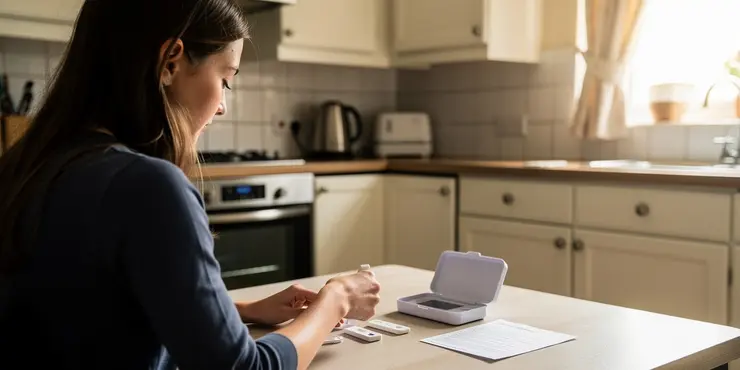
Find Help
More Items From Ergsy search
-
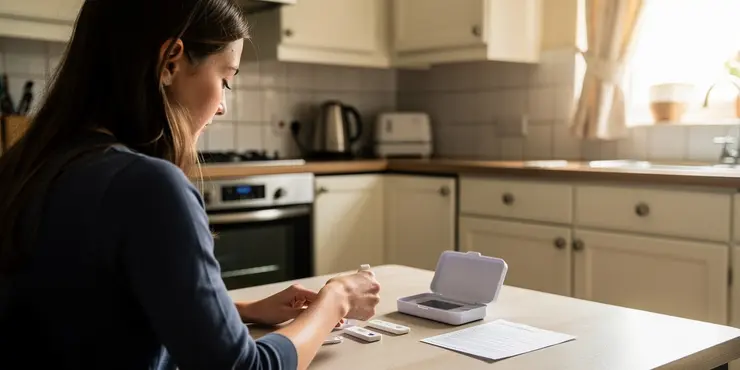
What age groups can benefit from self-testing?
Relevance: 100%
-
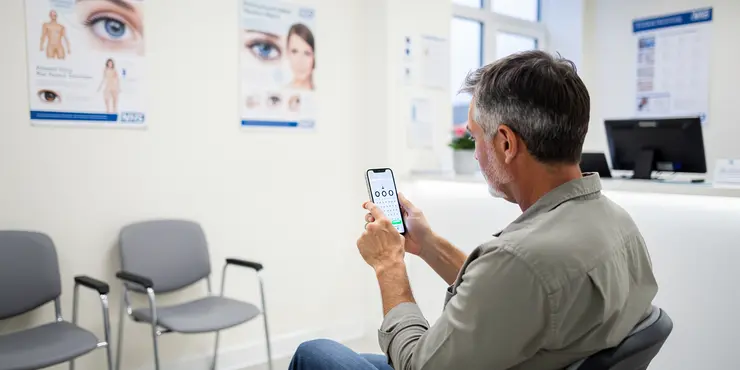
What are the limitations of self-testing for eyes?
Relevance: 61%
-
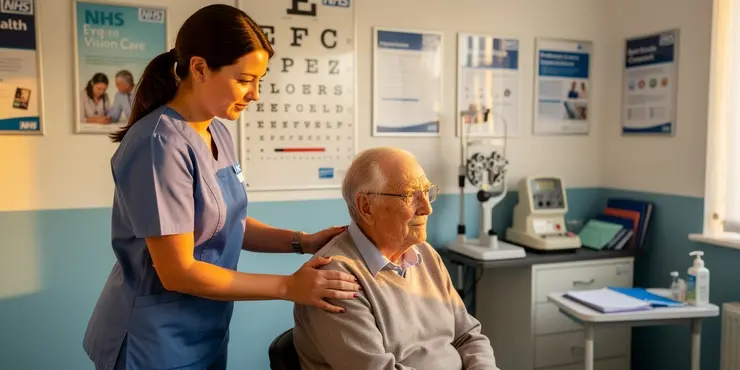
How often should I self-test my eyes?
Relevance: 58%
-
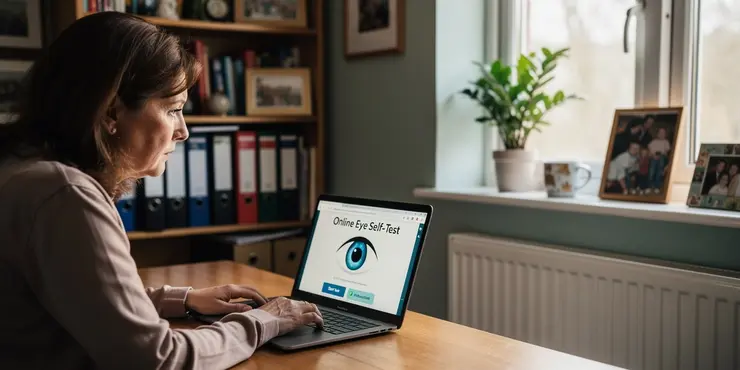
Why would someone need to self-test their eyes?
Relevance: 57%
-
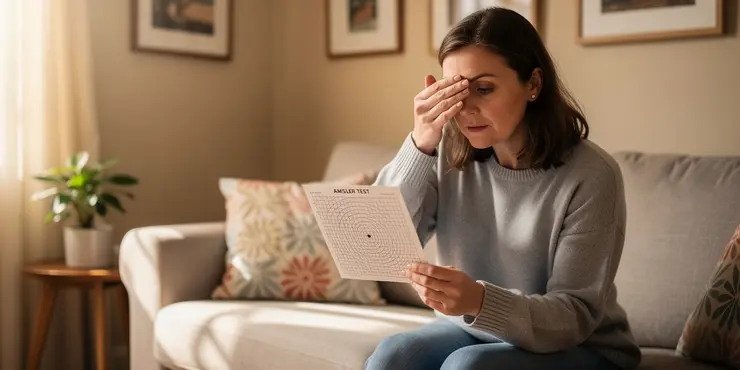
What is self-testing for eye patients?
Relevance: 56%
-
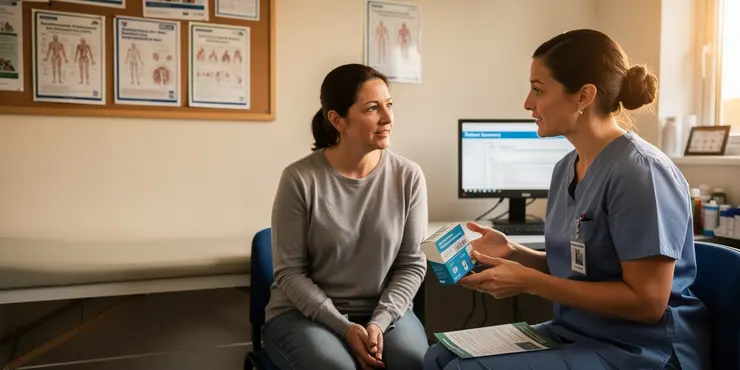
Is it possible for self-tests to cause harm?
Relevance: 55%
-
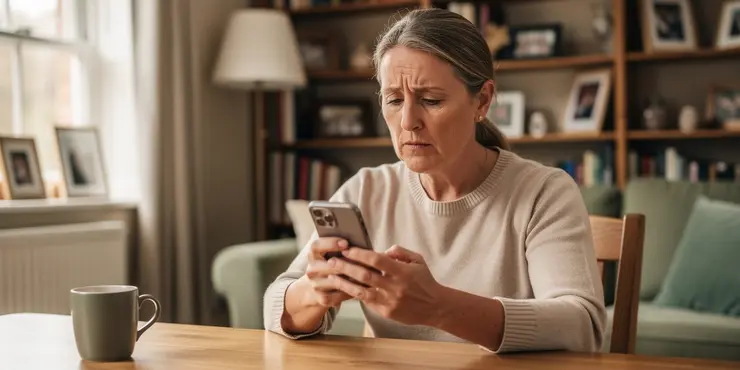
Can self-testing detect all eye conditions?
Relevance: 55%
-
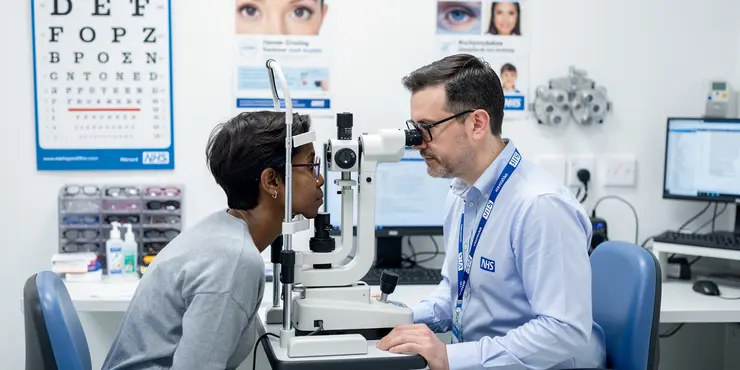
Are self-tests a substitute for professional eye exams?
Relevance: 53%
-
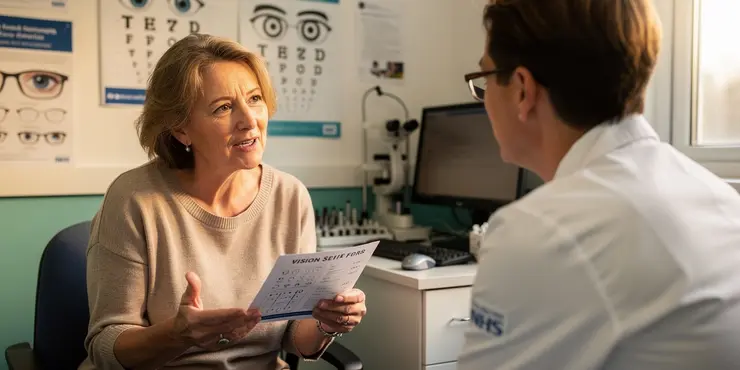
Should I share the results of my self-tests with my eye doctor?
Relevance: 52%
-

Is asthma more common in certain age groups?
Relevance: 52%
-
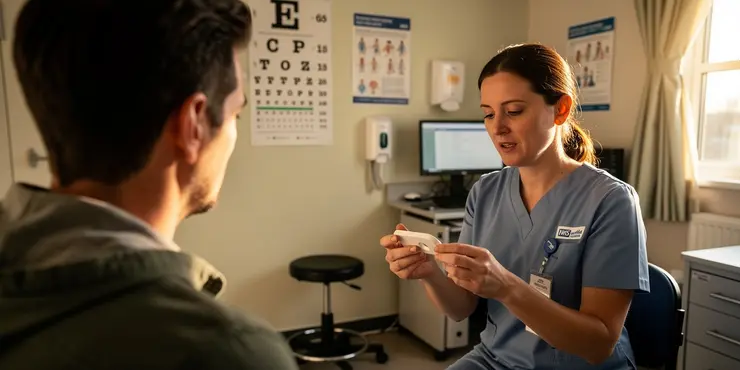
Do insurance plans cover the cost of self-testing tools?
Relevance: 52%
-
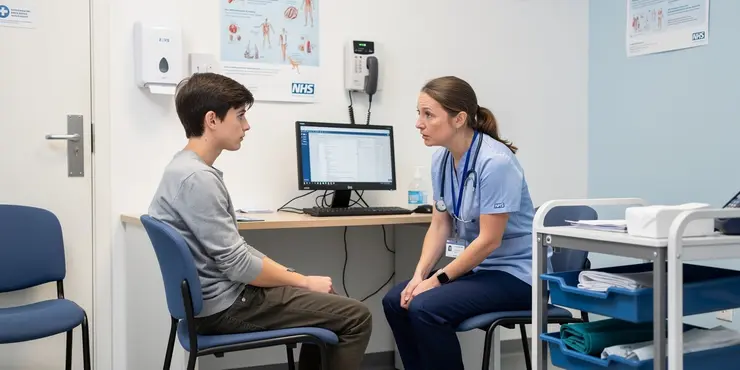
Is appendicitis common in any particular age group?
Relevance: 52%
-
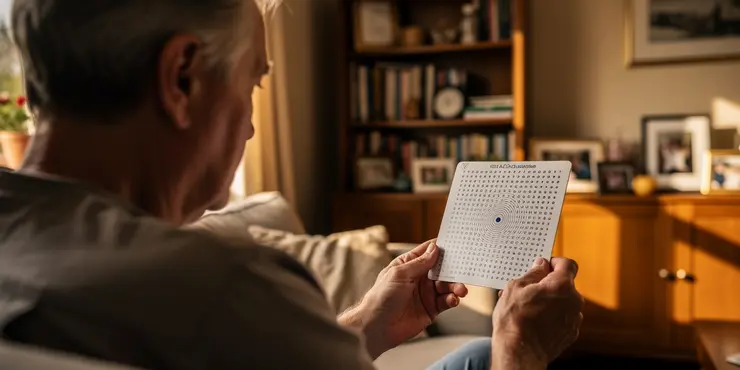
What types of self-tests are available for eye patients?
Relevance: 52%
-
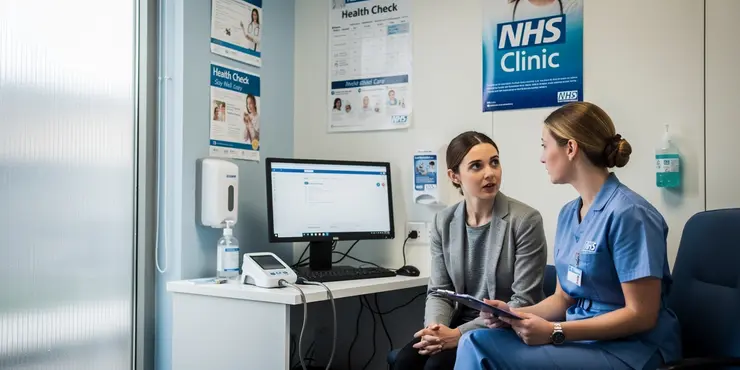
What age group is most at risk for HPV?
Relevance: 51%
-
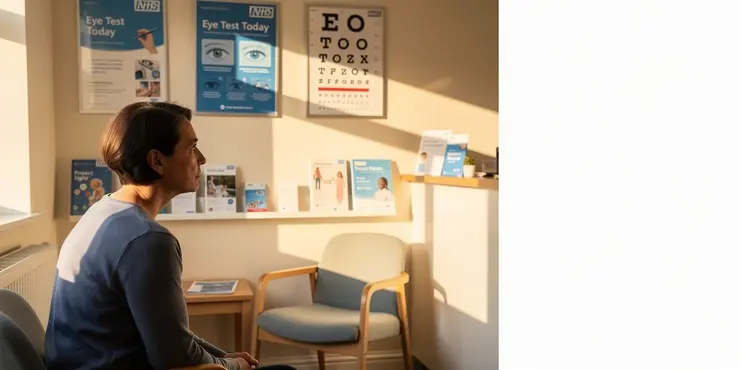
Do I need any special equipment for eye self-testing?
Relevance: 51%
-
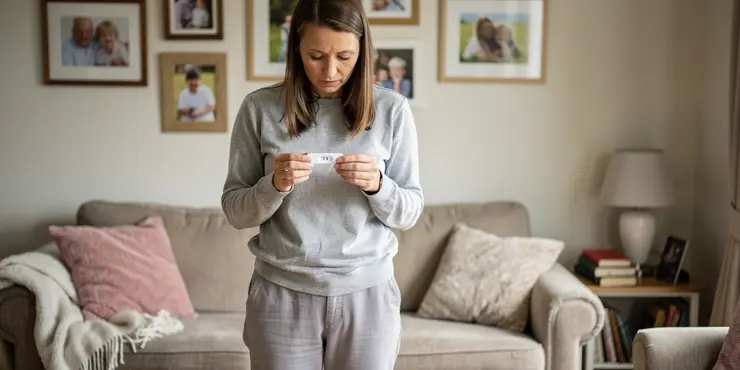
What should I do if I notice changes during self-testing?
Relevance: 50%
-
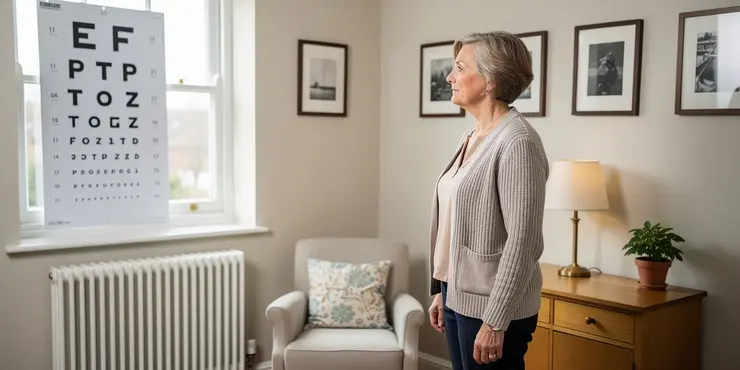
How do I use a vision chart for self-testing?
Relevance: 50%
-
What age group is most at risk for grooming?
Relevance: 48%
-
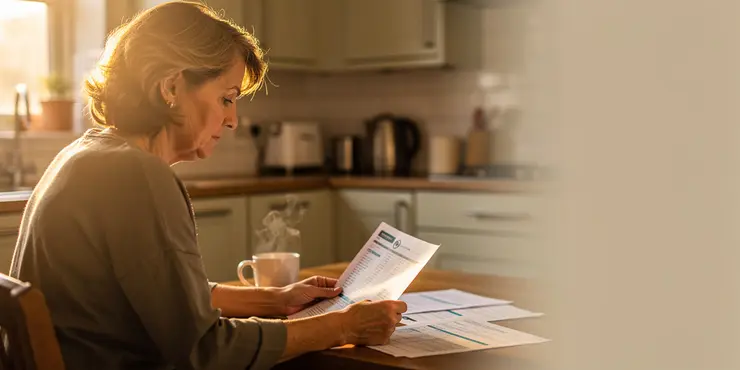
What age group will first see the state pension age at 67?
Relevance: 48%
-

What age groups are most at risk for concussions in rugby?
Relevance: 46%
-
Is aspirin more effective for certain age groups in preventing colorectal cancer?
Relevance: 45%
-
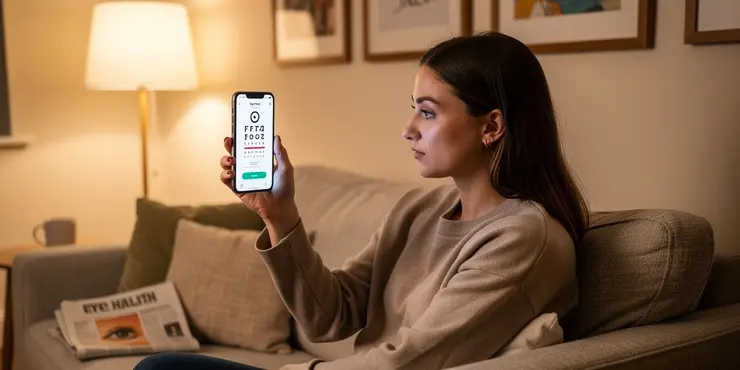
Can I use a smartphone for self-testing my eyes?
Relevance: 38%
-
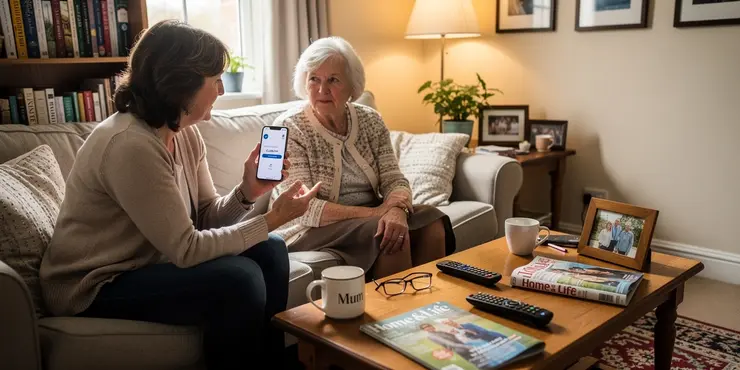
Digital Banking: A Surge in Adoption Amongst All Age Groups
Relevance: 38%
-
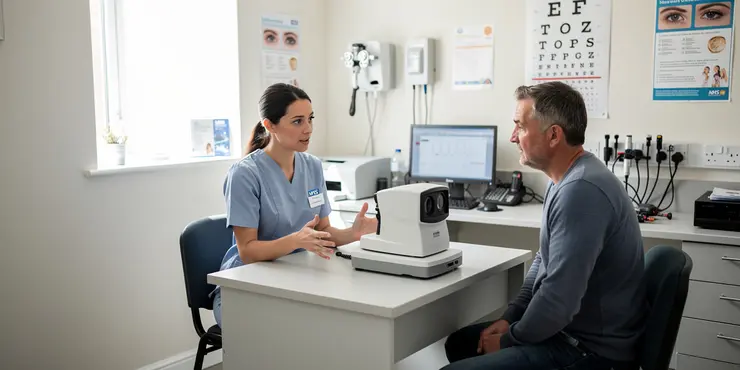
Are there any self-tests for eye pressure?
Relevance: 37%
-
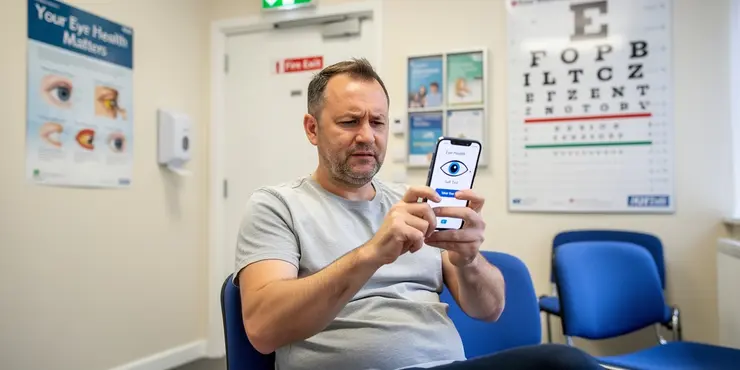
How does self testing for eye patients work?
Relevance: 37%
-
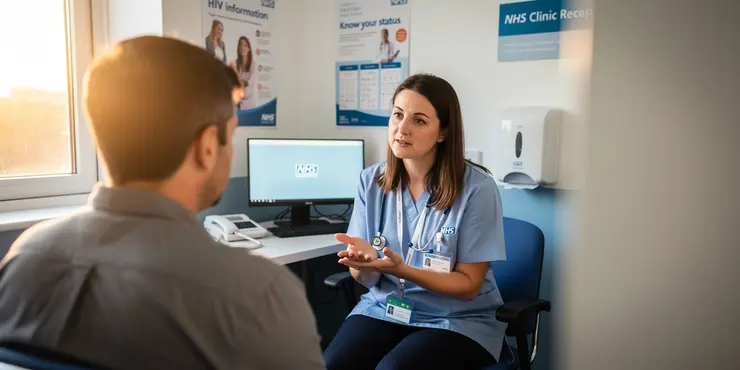
Is HIV only a concern for certain groups of people?
Relevance: 37%
-
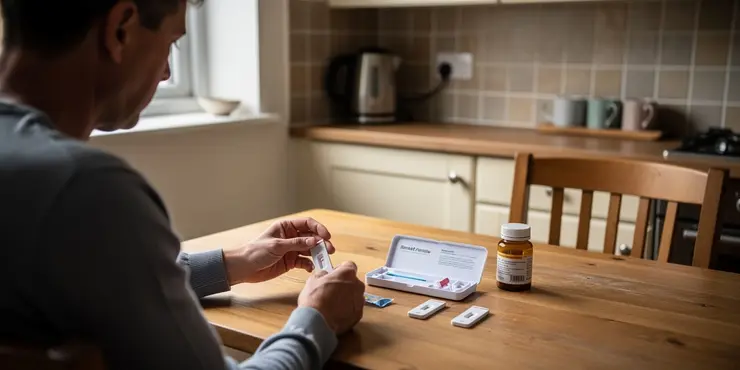
Can self-testing help me track my prescription changes?
Relevance: 36%
-
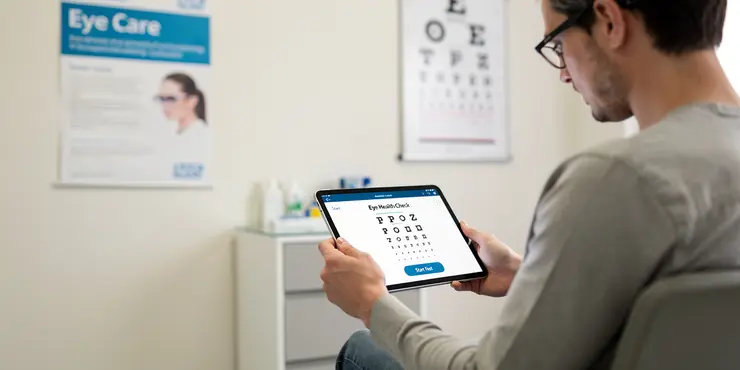
Where can I find reliable self-testing tools for my eyes?
Relevance: 36%
-
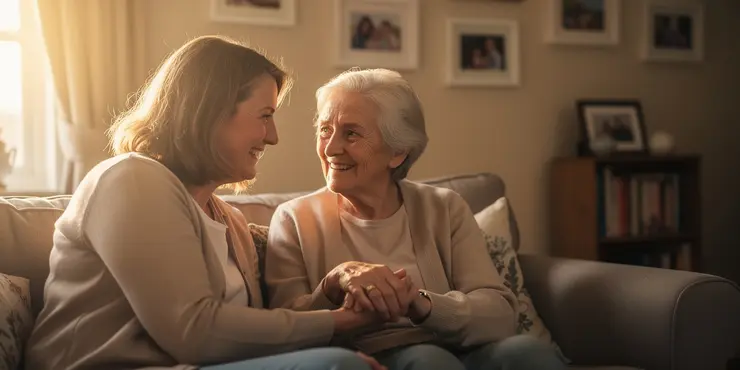
Are there any support groups for people with dementia in the UK?
Relevance: 35%
-

Are there support groups for postnatal depression?
Relevance: 33%
-
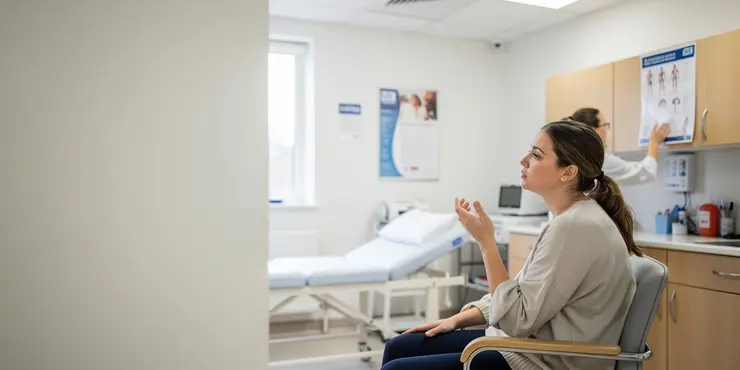
Can heart attack symptoms vary by age?
Relevance: 32%
-
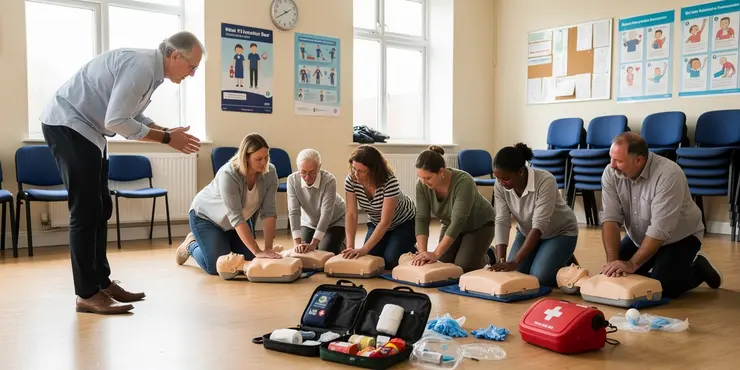
Can I learn first aid as a group?
Relevance: 32%
-

Is there a specific age requirement for Hyrox participants?
Relevance: 32%
-
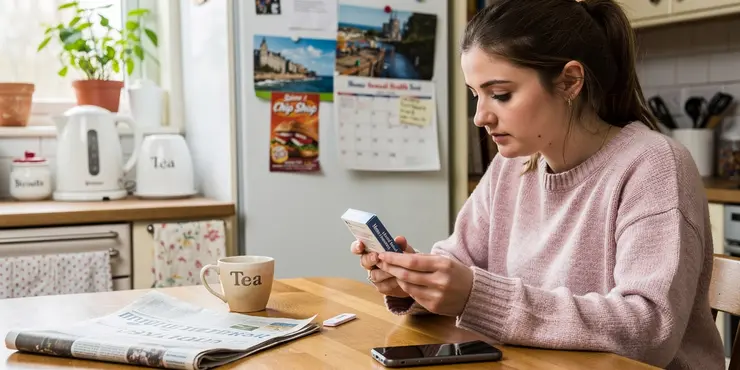
Let's Talk Sexual Health - Home Self Testing Kits
Relevance: 32%
-

How can older people find hobby groups that align with their interests?
Relevance: 30%
-
How can older people find new hobbies and groups?
Relevance: 30%
-
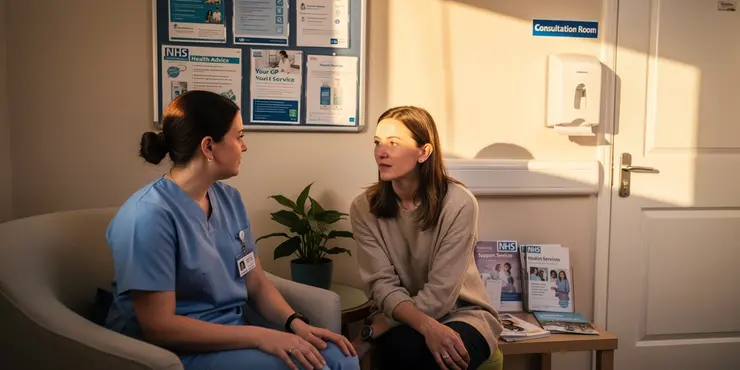
What are peer support groups for community helpers?
Relevance: 30%
-
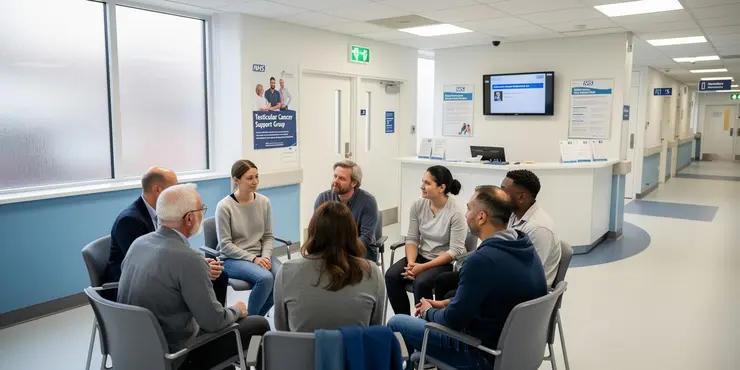
Are there support groups for those affected by testicular cancer?
Relevance: 30%
-
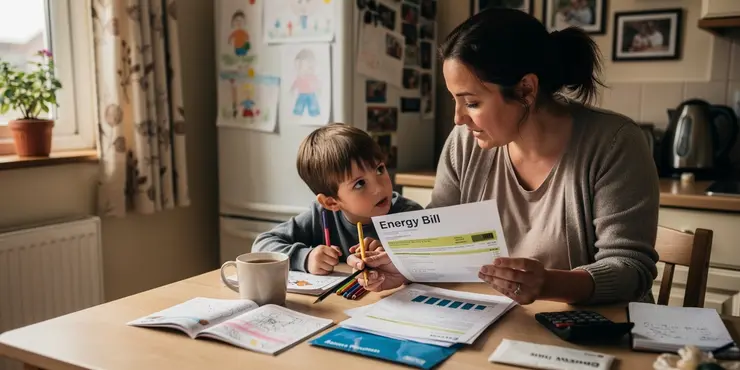
What is the Broader Group in the Warm Home Discount?
Relevance: 29%
-

How can older adults find travel or adventure groups?
Relevance: 29%
Introduction
Self-testing has become an increasingly popular method for individuals to monitor various aspects of their health conveniently and efficiently. From at-home COVID-19 tests to blood pressure monitors, self-testing tools are readily available and can benefit people of all ages. This article explores the different age groups that can benefit from self-testing, focusing on the UK audience.
Younger Adults (18-35)
Younger adults in the UK who lead busy lives often find self-testing advantageous due to its convenience and time-saving nature. This age group can greatly benefit from self-tests such as those for sexually transmitted infections (STIs), especially given the high prevalence of such conditions within this demographic. Home test kits for STIs provide privacy and allow prompt action if treatment is necessary. Additionally, self-monitoring of fitness levels using wearable technology has become popular, helping younger adults maintain a healthy lifestyle by tracking metrics such as heart rate and activity levels.
Middle-Aged Adults (36-55)
Middle-aged individuals often experience an increased risk of chronic health conditions like hypertension and diabetes. Self-testing tools for blood pressure and glucose levels allow this age group to monitor their health from the comfort of home, providing valuable data that can be shared with healthcare providers. Moreover, middle-aged adults can benefit from self-testing for high cholesterol and colorectal cancer, which are conditions that become more prevalent as people age. These self-tests enable early detection and management, which is crucial for preventing further health complications.
Older Adults (56 and above)
Older adults in the UK can significantly benefit from self-testing as it empowers them to manage their health proactively. Self-testing devices for monitoring blood pressure, blood sugar, and oxygen saturation are particularly beneficial for those with existing health conditions. Older adults can also benefit from home kits for bone density testing, which can help in early detection of osteoporosis. Regular self-monitoring can lead to timely medical interventions, minimizing the risk of severe illness. Additionally, self-testing promotes independence by reducing the need for frequent trips to healthcare facilities, which is particularly advantageous for those with mobility issues.
Conclusion
In summary, self-testing offers a myriad of benefits across all age groups in the UK. Whether it's the convenience for younger adults, risk management for middle-aged adults, or maintaining independence for older adults, self-testing is an invaluable tool for promoting health and well-being. With the advancement of technology and the increasing availability of home testing kits, individuals can take a more active role in managing their health, leading to more informed health decisions and better outcomes.
Introduction
Self-testing means checking your health at home using special tools. Many people now use self-testing because it is easy and fast. You can test for things like COVID-19 at home, or check your blood pressure. These tools are helpful for everyone, young or old. This article talks about how different age groups in the UK can use self-testing to stay healthy.
Younger Adults (18-35)
Young adults in the UK are often very busy. Self-testing helps them because it saves time and is easy to do. Young people can use tests to check for infections you can get from other people, like sexually transmitted infections (STIs). These tests are private, and you can take action if you need treatment. Also, many young people use gadgets to check how fit and active they are. These gadgets tell them about their heart rate and daily exercise.
Middle-Aged Adults (36-55)
People between 36 and 55 can have more health problems like high blood pressure and diabetes. Self-testing helps them by allowing them to check these conditions at home. They can test their blood pressure and sugar levels easily. Middle-aged adults can also test for high cholesterol and some types of cancer like colorectal cancer. Finding these health issues early can help stop them from getting worse.
Older Adults (56 and above)
Older people in the UK can get a lot of help from self-testing. They can use tools to check blood pressure, blood sugar, and oxygen levels, which is very important if they already have health problems. They can also test their bone strength to watch for osteoporosis. Checking regularly helps them get medical help before things get serious. Self-testing also helps them stay independent because they don't need to go to the doctor as much, which is good for those who find it hard to travel.
Conclusion
To sum up, self-testing is useful for everyone in the UK. Young adults like it because it is quick and easy. Middle-aged people use it to manage health risks. Older adults find it helps them stay independent. With new technology, there are more self-tests available, helping people make better health choices and stay healthy.
Frequently Asked Questions
What age groups are appropriate for self-testing?
Self-testing can be beneficial for all age groups provided the tests are appropriate for their age and ability to perform the test safely and accurately.
Can children use self-tests?
Children can use self-tests with adult supervision to ensure safety and accurate results.
Are self-tests reliable for teenagers?
Yes, self-tests can be reliable for teenagers, particularly when they follow the instructions carefully.
Should older adults use self-tests?
Older adults can benefit from self-tests, especially if they have mobility issues or difficulty accessing healthcare facilities.
Can self-tests be used by pregnant women?
Yes, many self-tests are safe for use by pregnant women, but they should consult with a healthcare provider for specific recommendations.
Is there an age limit for self-testing?
There is no strict age limit, but users should be able to follow instructions accurately and might need assistance depending on the complexity of the test.
Are self-tests suitable for infants?
Self-tests are generally not recommended for infants unless specifically designed for them, and should always be administered by a healthcare professional.
Do teenagers require supervision while self-testing?
Early teenagers might benefit from parental guidance to ensure correct usage of the test.
What factors should be considered for self-testing in children?
Consider their ability to understand instructions, the nature of the test, and whether supervision is available.
Is self-testing advisable for individuals with cognitive impairments?
Individuals with cognitive impairments may require assistance to ensure the test is conducted correctly and safely.
Can self-testing be repeated across different ages?
Yes, individuals may self-test at different ages, but should always ensure the test is appropriate for their current health condition and lifestyle.
Are there self-tests designed specifically for older adults?
Some self-tests are designed with accessibility features for older adults, such as larger print or simpler instructions.
Do self-tests need to be age-specific?
Some tests are age-specific due to health and physiological differences, so it’s important to choose an appropriate test.
How can adults ensure accurate self-testing?
Adults should carefully read and follow all instructions and, if needed, seek clarification from a healthcare provider.
What precautions should be taken when self-testing small children?
Always supervise self-testing in young children to ensure proper use and to prevent any risks.
Is it safe for elderly people to perform self-tests without assistance?
This depends on the individual's health and abilities; some may need assistance to safely and accurately perform self-tests.
Can all commercial self-tests be used by any age group?
Not all; some self-tests have age restrictions and specific instructions tailored to certain age groups.
How can self-testing benefit young adults?
Young adults can use self-testing as a convenient way to monitor their health privately and regularly.
What types of tests are commonly used for self-testing across ages?
Common self-tests include pregnancy tests, blood glucose tests, and various at-home diagnostic kits.
Why is self-testing popular across different age groups?
Self-testing offers convenience, privacy, and accessibility, making it appealing for various age groups looking to monitor their health independently.
Who can do a self-test?
Self-testing can be good for everyone if the tests are right for their age and they can do them safely and correctly.
Can kids do tests by themselves?
Kids can do tests by themselves if a grown-up helps. This makes sure it's safe and the test works well.
Do self-tests work well for teenagers?
Yes, teenagers can trust self-tests if they follow the steps carefully.
Can older people use self-tests?
Older people might want to use tests they can do themselves at home. These tests can help check on health. It's important to see if these tests are easy to use and give clear results. Family, friends, or caregivers can help when using self-tests. People can also ask their doctor for advice.
- Make sure the test is easy to understand.
- Ask someone for help if needed.
- Talk to a doctor about the test results.
Older people can use self-tests. These are helpful if it is hard for them to move or go to the doctor.
Can pregnant women use self-tests?
Yes, pregnant women can use self-tests. These tests are safe.
If you have questions, talk to your doctor. They can help you understand the test results.
You can also ask someone you trust to help you read the test instructions and results.
Yes, many self-tests are safe for pregnant women to use. But they should talk to a doctor or nurse to get the best advice.
Can anyone do a self-test, or is there an age limit?
There is no specific age limit. But, people should be good at following instructions. Some people might need help if the test is hard.
Are self-tests okay for babies?
Self-tests are tests you can do by yourself. But, if you have a baby, it is best to ask a doctor before using any test. Babies need special care.
If you feel unsure, talk to a doctor or nurse. They can help you understand what's best for your baby.
It is usually not a good idea to use self-tests on babies. These tests are not made for them. If a test is made for babies, a doctor or nurse should do the test.
Do teenagers need someone to help them when they test themselves?
Simple steps can help too! Use pictures, clear lists, or a favorite pen to make it easier!
Young teenagers might need help from their parents to use the test the right way.
What should you think about for kids to do self-testing?
When kids are going to test themselves, think about these things:
- Age: Are they old enough to do the test by themselves?
- Understanding: Do they know how to do the test and what it is for?
- Help from adults: Is there an adult to help them if they need it?
- Tools: Use simple guides or pictures to show how to do the test.
If you need more help, you can use:
- Videos: Watch a video that shows how to do it step-by-step.
- Practice: Practice with a toy or pretend test first.
- Ask questions: Make sure they feel okay to ask questions if confused.
Think about how well they can follow instructions, what the test is like, and if someone can help watch over them.
Is it a good idea for people with thinking difficulties to test themselves?
People who have trouble thinking or remembering might need help to make sure the test is done right and safely.
Can you do self-testing at different ages?
Yes, you can do self-tests when you are young, a teenager, or an adult.
Here are some tips to help:
- Ask a family member or friend for help.
- Use simple instructions or pictures.
- Take your time and go slowly.
Yes, people can test themselves at different ages. But it's important to make sure the test is right for your health and way of living.
Can older people take tests by themselves?
Yes, there are tests that older people can do on their own. These tests help check their health and memory.
It is good to have a family member or friend to help. They can read the questions out loud if needed.
Using a magnifying glass can make it easier to see the questions. Taking breaks can also help.
Some tests are made to be easier for older people to use. They have bigger letters and simpler rules.
Do self-tests need to be made for different ages?
Some tests are made for people of certain ages because our bodies change as we get older. This is why it is important to pick the right test for your age.
How can adults get self-testing right?
Grown-ups need to read all the instructions very carefully. If they don't understand, they should ask a doctor or nurse for help.
How can you keep kids safe when testing them at home?
Here are some tips to help you:
- Make sure the child feels calm and okay with the test.
- Read the test instructions carefully before you start.
- Have an adult help with the test. Don't let kids do it alone.
- Use kid-friendly tools, like small swabs.
- Talk to the child in simple words about what will happen.
You can also use videos or pictures to show how the test works.
Always watch young children when they test themselves. This makes sure they do it right and stay safe.
Can older people do self-tests on their own safely?
Older people may need help when doing self-tests.
It's best to ask a family member or a friend to be there.
This makes sure the test is done safely and correctly.
Using a phone or video call to talk to someone who knows about the test can also help.
This depends on how healthy and able the person is. Some people might need help to do the test safely and correctly.
Can people of all ages use store-bought self-tests?
Not all tests are for everyone. Some tests are only for people of certain ages. They have special rules for each age group.
How does self-testing help young adults?
Self-testing is when you take a test by yourself to see what you know.
Here are some ways it can help:
- It shows you what you are good at.
- It tells you what you need to practice more.
- It makes you feel more confident.
- It helps you learn better and remember more.
Try using things like flashcards or fun quizzes to test yourself.
Young people can use simple tests to check their health at home. This means they can do it easily and keep it private.
What tests can people of all ages do by themselves?
Some tests you can do at home are: pregnancy tests, tests to check blood sugar, and other test kits you use by yourself.
Why do people of all ages like self-testing?
Self-testing is when you check your own health or skills. People like it because:
- It is quick and easy.
- You can do it at home.
- It helps you learn about your health.
Here are some ways to make self-testing easier:
- Use simple instructions.
- Watch a video of how to do it.
- Ask someone for help if you need it.
Self-testing is an easy way to check your health. You can do it at home. You don't need other people to help. It is good for anyone who wants to look after their health by themselves.
Useful Links
This website offers general information and is not a substitute for professional advice.
Always seek guidance from qualified professionals.
If you have any medical concerns or need urgent help, contact a healthcare professional or emergency services immediately.
Some of this content was generated with AI assistance. We’ve done our best to keep it accurate, helpful, and human-friendly.
- Ergsy carfully checks the information in the videos we provide here.
- Videos shown by Youtube after a video has completed, have NOT been reviewed by ERGSY.
- To view, click the arrow in centre of video.
- Most of the videos you find here will have subtitles and/or closed captions available.
- You may need to turn these on, and choose your preferred language.
- Go to the video you'd like to watch.
- If closed captions (CC) are available, settings will be visible on the bottom right of the video player.
- To turn on Captions, click settings .
- To turn off Captions, click settings again.
More Items From Ergsy search
-

What age groups can benefit from self-testing?
Relevance: 100%
-

What are the limitations of self-testing for eyes?
Relevance: 61%
-

How often should I self-test my eyes?
Relevance: 58%
-

Why would someone need to self-test their eyes?
Relevance: 57%
-

What is self-testing for eye patients?
Relevance: 56%
-

Is it possible for self-tests to cause harm?
Relevance: 55%
-

Can self-testing detect all eye conditions?
Relevance: 55%
-

Are self-tests a substitute for professional eye exams?
Relevance: 53%
-

Should I share the results of my self-tests with my eye doctor?
Relevance: 52%
-

Is asthma more common in certain age groups?
Relevance: 52%
-

Do insurance plans cover the cost of self-testing tools?
Relevance: 52%
-

Is appendicitis common in any particular age group?
Relevance: 52%
-

What types of self-tests are available for eye patients?
Relevance: 52%
-

What age group is most at risk for HPV?
Relevance: 51%
-

Do I need any special equipment for eye self-testing?
Relevance: 51%
-

What should I do if I notice changes during self-testing?
Relevance: 50%
-

How do I use a vision chart for self-testing?
Relevance: 50%
-
What age group is most at risk for grooming?
Relevance: 48%
-

What age group will first see the state pension age at 67?
Relevance: 48%
-

What age groups are most at risk for concussions in rugby?
Relevance: 46%
-
Is aspirin more effective for certain age groups in preventing colorectal cancer?
Relevance: 45%
-

Can I use a smartphone for self-testing my eyes?
Relevance: 38%
-

Digital Banking: A Surge in Adoption Amongst All Age Groups
Relevance: 38%
-

Are there any self-tests for eye pressure?
Relevance: 37%
-

How does self testing for eye patients work?
Relevance: 37%
-

Is HIV only a concern for certain groups of people?
Relevance: 37%
-

Can self-testing help me track my prescription changes?
Relevance: 36%
-

Where can I find reliable self-testing tools for my eyes?
Relevance: 36%
-

Are there any support groups for people with dementia in the UK?
Relevance: 35%
-

Are there support groups for postnatal depression?
Relevance: 33%
-

Can heart attack symptoms vary by age?
Relevance: 32%
-

Can I learn first aid as a group?
Relevance: 32%
-

Is there a specific age requirement for Hyrox participants?
Relevance: 32%
-

Let's Talk Sexual Health - Home Self Testing Kits
Relevance: 32%
-

How can older people find hobby groups that align with their interests?
Relevance: 30%
-
How can older people find new hobbies and groups?
Relevance: 30%
-

What are peer support groups for community helpers?
Relevance: 30%
-

Are there support groups for those affected by testicular cancer?
Relevance: 30%
-

What is the Broader Group in the Warm Home Discount?
Relevance: 29%
-

How can older adults find travel or adventure groups?
Relevance: 29%


